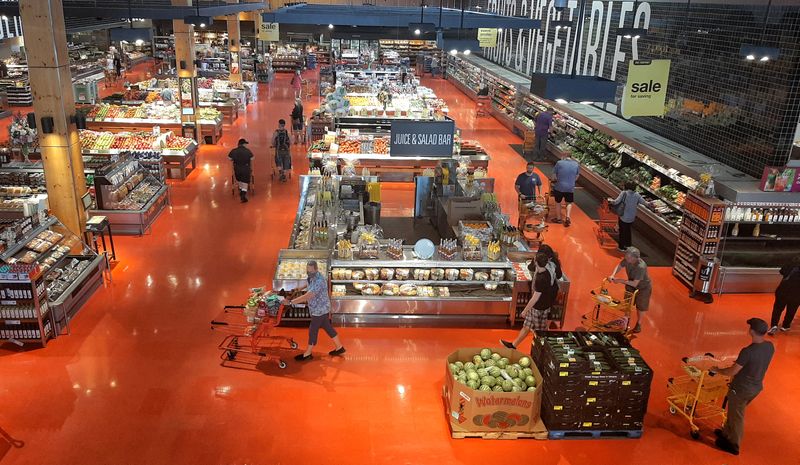By Steve Scherer and David Ljunggren
OTTAWA (Reuters) - Most Canadian businesses expect a mild recession over the next year because higher interest rates are curbing investment plans and consumer spending, while at the same time more see inflation staying high for longer, the Bank of Canada said on Monday.
Business sentiment continued to weaken in the fourth quarter and expectations for slower sales growth increased for a fourth consecutive quarter, according to a quarterly survey. Some two-thirds of firms expect a recession over the next 12 months, with 90% of those expecting it to be mild.
Almost 30% of firms see sales falling over the next year, mainly because of weakening domestic demand. Several businesses said rising interest rates were slowing household demand and housing market activity.
When it hiked rates in December at its last policy meeting to 4.25% - the highest level in almost 15 years - the Bank of Canada said it would study economic data to gauge whether to raise interest rates further.
"The Bank of Canada's aggressive rate hikes through 2022 have clearly weighed on economic sentiment among both businesses and consumers," Shelly Kaushik, an economist at BMO Capital Markets, said in a note.
"However, still-elevated inflation expectations will keep the Bank on alert. This survey is consistent with our call of a 25 basis-point rate hike at next week’s meeting, after which we anticipate the Bank will hold interest rates steady through the remainder of 2023," she said.
December consumer price figures will be released on Tuesday, and the Bank of Canada will publish new forecasts and its next policy decision on Jan. 25.
The Canadian 2-year yield fell 9.5 basis points to 3.585%, its lowest in more than four months. The Canadian dollar was trading 0.1% higher at 1.3388 to the greenback, or 74.69 U.S. cents.
In his most recent remarks, Bank of Canada Governor Tiff Macklem cited the risk of sticky - or persistent - inflation, which might require "much higher" rates.
The survey showed that 84% of firms expect inflation to remain above 3% for the next two years, up from 77% in the third quarter.
Canada's annual inflation rate eased to 6.8% in November as gasoline prices rose more slowly, still well above the central bank's 2% target, data showed last month.

Around 71.5% of consumers also expect "a mild to moderate recession" and just under half of those expect it to be "moderate in severity and length", according to a separate quarterly survey.
Almost 64% of consumers said they would reduce spending and save more to cope with inflation and rising interest rates. Consumer expectations for inflation one year from now rose to 7.18%, a record, according to the central bank.